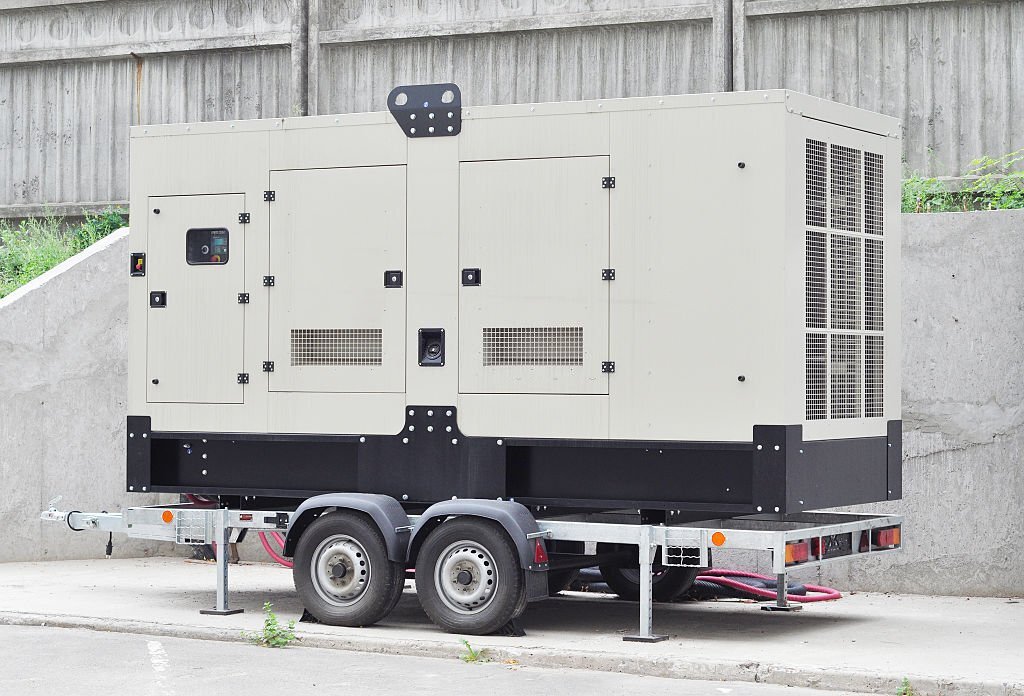
The seamless operation of heavy equipment relies on a multitude of factors, and navigating the legal landscape is of paramount importance. When it comes to using power generators with heavy equipment, adherence to regulations and obtaining necessary permits is critical. This comprehensive article delves into the intricacies of regulations and permits required for integrating power generators into heavy equipment operations. From environmental regulations and noise permits to emissions standards, safety considerations, permitting processes, and the significance of responsible adherence to legal frameworks, we navigate the complex intersection between regulatory compliance and effective heavy equipment management.
Environmental Regulations and Compliance
Power generators impact the environment, necessitating adherence to specific regulations.
2. Air Quality Standards: Generators must adhere to air quality standards to prevent pollution and protect public health.
3. Emission Control Technologies: Compliance may involve the use of emission control systems to reduce harmful pollutants.
4. Exhaust Emission Limits: Generators must meet exhaust emission limits set by regulatory authorities.
Noise Permits and Mitigation
Noise pollution from generators requires permits and mitigation efforts.
1. Local Noise Ordinances: Comply with local noise ordinances that set permissible noise levels.
2. Noise Mitigation: Implement noise reduction measures to ensure compliance with noise standards.
3. Noise Monitoring: Regularly monitor generator noise levels to ensure they remain within acceptable limits.
4. Event-Specific Permits: Temporary events may require special noise permits based on location and duration.
Safety Considerations and Compliance
Safety regulations ensure the well-being of personnel operating heavy equipment.
1. Occupational Safety and Health Administration (OSHA): OSHA regulations set safety standards for workplace conditions, including generator operations.
3. Emergency Procedures: Establish clear emergency procedures for generator-related incidents.
4. Operator Protection: Safety measures such as protective gear and proper ventilation protect operators from hazards.
Permitting Processes and Documentation
Obtaining permits involves a structured process and necessary documentation.
1. Permit Types: Depending on the jurisdiction and project scope, permits may include environmental, noise, and safety permits.
2. Application Process: Follow the designated application process outlined by regulatory authorities.
3. Documentation: Prepare required documents such as project plans, equipment specifications, and environmental impact assessments.
4. Review and Approval: Permits undergo review and approval by relevant regulatory bodies.
Site-Specific Considerations
Different project sites may have unique permitting requirements.
1. Urban vs. Rural Settings: Urban areas may have stricter noise and emissions regulations compared to rural locations.
2. Sensitive Locations: Sites near residential areas, schools, or sensitive ecosystems may require additional permits.
3. Temporary vs. Permanent Installations: Temporary projects may require different permits than permanent installations.
4. Historic Sites: Projects near historic sites may require additional permits to ensure preservation.
Consequences of Non-Compliance
Failing to adhere to regulations and obtain necessary permits can have serious consequences.
1. Fines and Penalties: Non-compliance can result in substantial fines and penalties.
2. Project Delays: Lack of permits can lead to project delays and financial setbacks.
3. Legal Action: Regulatory authorities may take legal action against operators in violation of regulations.
4. Reputation Damage: Non-compliance can tarnish an organization’s reputation and credibility.
Importance of Responsible Adherence
Responsible adherence to regulations is crucial for ethical and sustainable operations.
2. Community Relations: Following noise and emissions standards fosters positive community relations.
3. Safety Culture: Adhering to safety regulations promotes a culture of safety within the organization.
4. Legal Accountability: Compliance safeguards against legal liabilities and ensures responsible practices.
Technological Advances and Future Trends
Technology is influencing compliance and permitting processes.
1. Online Permit Applications: Online platforms streamline the permit application and approval process.
2. Real-Time Monitoring: Advanced monitoring technologies allow real-time tracking of noise and emissions levels.
3. Predictive Analytics: Predictive algorithms can assess project requirements and recommend necessary permits.
Conclusion
Operating power generators with heavy equipment requires a comprehensive understanding of the regulatory landscape and the importance of obtaining permits. Adhering to environmental, noise, safety, and other regulations is not only a legal requirement but a testament to responsible and ethical heavy equipment operations. As industries evolve and technology advances, the significance of regulatory compliance remains unwavering. By embracing regulations, obtaining necessary permits, and upholding responsible practices, heavy equipment operators can drive forward while contributing to environmental sustainability, safety, and operational excellence.

